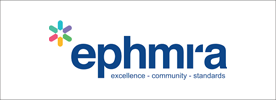
In the wake of the global pandemic, the healthcare market research industry underwent a significant transformation, with a sharp increase in remote qualitative research methods. However, as the world emerged from the grips of the pandemic, researchers faced the task of returning to in-person qualitative research. This transition has brought with it a set of considerations and differences when conducting qualitative research across various countries.
The landscape of qualitative research underwent a remarkable shift due to the surge in demand brought about by the COVID-19 pandemic. With a substantial groundwork already laid for remote work, the pandemic acted as a catalyst, propelling researchers into a realm dominated by virtual methodologies such as virtual focus groups, online interviews, and the emergence of platforms like M3 Global Research’s innovative QualStage. While these remote methods offered flexibility and accessibility, they also presented limitations in terms of non-verbal cues, rapport building, and the ability to observe participants in their natural environments.
In the aftermath of the pandemic, we find ourselves in a post-transitional phase where the true significance of in-person qualitative research comes to the forefront. The heightened reliance on remote methods has shed light on the unique value held by in-person interactions. This traditional approach has resurfaced as a paramount avenue for unlocking an unparalleled depth of insights and attaining a more profound comprehension of the subject matter.
However, returning to in-person qualitative research across countries requires careful planning, adaptability, and an understanding of the unique challenges and opportunities in each location. Cultural differences, regulatory frameworks, and logistical considerations vary significantly from one country to another, making it imperative for healthcare researchers to navigate these complexities effectively. The impact of the pandemic extends beyond logistical considerations. It has also shaped the mindset and behaviours of participants, who may have developed new attitudes towards healthcare, treatment options, and personal well-being. Understanding these shifts and nuances is crucial for accurate data collection and insightful analysis.
By examining the considerations and differences associated with conducting in-person qualitative research across countries, researchers can gather data that reflect the local context, cultural norms, and individual experiences. This approach allows for a more precise understanding of the medical market landscape, enabling stakeholders to make informed decisions and develop effective strategies.
As researchers return to in-person qualitative research, it is essential to strike a balance between leveraging the advantages of face-to-face interactions and incorporating the lessons learned from remote methodologies. This hybrid approach has the potential to unlock a wealth of qualitative data that is vital for shaping the future of the healthcare market research industry.
In this blog, our focus will encompass the following key areas:
- Understanding the Context: Global Perspectives
- Preparing for In-Person Qualitative Research
- Recruitment and Participant Selection
Understanding the Context: Global Perspectives
To effectively conduct in-person qualitative research across countries, having an overview of the healthcare industry is important. Different countries may have distinct healthcare systems, cultural preferences, and regulatory frameworks. These variations can significantly influence the approach to qualitative research. Understanding these global perspectives is crucial for conducting effective studies.
Cultural diversity plays a significant role in qualitative research, shaping participants' perspectives, behaviours, and communication styles. Different countries have distinct cultural norms, values, and beliefs that influence how individuals perceive and interact with healthcare systems, medical treatments, and healthcare professionals. Researchers must navigate these cultural nuances to ensure accurate data collection and interpretation. Understanding cultural sensitivities and adapting research methodologies accordingly allows for a deeper appreciation of the intricacies of participants' experiences and facilitates more meaningful insights.
Regulatory frameworks and ethical guidelines vary across countries, reflecting unique approaches to healthcare and research practices. Researchers must familiarise themselves with the specific regulations governing medical market research in each country to ensure compliance and ethical conduct. This includes obtaining the necessary approvals and permissions from local authorities and ethical review boards. Adhering to these guidelines protects the rights, privacy, and well-being of participants, and upholds the integrity of the research process.
Each country has its own healthcare system characterised by varying structures, policies, and access to healthcare services. Understanding these differences is significant when it comes to designing effective qualitative research studies. Researchers need to be aware of the healthcare landscape, including the roles of healthcare providers, patients' experiences within the system, and the impact of cultural, social, and economic factors on healthcare delivery. Tailoring research methodologies to align with the specific healthcare context allows for a more accurate understanding of participants' perspectives and the broader implications for the medical market.
Language is a fundamental aspect of qualitative research. Conducting in-person research across countries requires consideration of language barriers and translation challenges. Researchers should account for language diversity, ensuring that interviews, focus groups, or observations are conducted in participants' preferred languages. In cases where language barriers exist, employing professional translators or interpreters becomes important to facilitate effective communication and accurate data collection. The translation process should also emphasise cultural sensitivity to ensure the context of participants' responses are preserved during analysis.
Preparing for In-Person Qualitative Research
Preparing for in-person qualitative research requires careful preparation to ensure a successful and ethical study. To conduct effective in-person qualitative research, researchers must begin by defining clear research objectives. These objectives serve as guiding principles and determine the direction and focus of the study. By establishing specific goals, researchers can tailor their research methodologies and data collection techniques to address the questions effectively.
Over the years, the significance of in-person research has become evident, particularly in projects where intricate interactions, contextual insights, and the sensitive nature of healthcare-related products and services come into play.
One prominent example within the healthcare market research industry is the testing of medical devices, such as wearable health trackers. In-person testing allows researchers to closely observe how patients interact with these devices. For instance, consider a study focused on evaluating the usability of a new wearable heart rate monitor. By conducting in-person sessions, researchers can witness firsthand how participants attach the device, monitor their heart rate, and interpret the data displayed. This approach unveils insights into user-friendliness, comfort, and potential technical challenges that might not be fully captured through remote methods. Ultimately, the data collected informs design improvements and helps create a device that seamlessly integrates into patients' lives.
Another compelling application of in-person qualitative research within healthcare market research involves testing patient experiences with telemedicine platforms. As the healthcare industry increasingly embraces telehealth solutions, understanding patients' perceptions and challenges becomes paramount. Researchers can host in-person focus groups or interviews to delve into participants' experiences with virtual medical consultations. Through these interactions, researchers can explore patients' emotional responses, gauge their comfort levels with remote consultations, and identify any barriers or concerns they might have. This qualitative approach uncovers nuanced insights that aid in refining telemedicine platforms, optimising user interfaces, and ensuring patient satisfaction.
Furthermore, in-person qualitative research proves invaluable when examining patient preferences for pharmaceutical packaging and labelling. A study centred around evaluating the packaging of prescription medications could involve inviting participants to a controlled environment where they can interact with various packaging prototypes. Researchers can observe how patients handle the packaging, assess its readability, and gather feedback on its ease of use, particularly for individuals with dexterity or vision challenges. This detailed feedback guides the design of packaging that enhances patient safety, adherence, and overall experience.
In tandem with establishing clear research objectives, designing a well-defined study is critical when preparing for in-person qualitative research. Researchers need to determine the most appropriate qualitative methodologies that align with the desired outcomes. This involves selecting methods such as individual interviews or focus groups, based on the research objectives and the nature of the research topic. Each method has its strengths and limitations, and the choice should be based on the specific insights sought and the preferences of participants in each country.
Ethics and regulatory compliance are imperative when conducting in-person qualitative research. Researchers should familiarise themselves with the local ethical guidelines and regulations in each country where the study will take place. This ensures that the research process respects the rights, autonomy, and privacy of participants, as well as complies with legal requirements.
Ethical considerations include obtaining informed consent from participants, ensuring their confidentiality, and protecting their personal data. Researchers should also establish protocols for addressing any potential risks or discomfort that participants might experience during the study. Familiarising themselves with local ethical review boards or institutional review boards helps researchers navigate the regulatory landscape and obtain the necessary approvals and permissions.
By adhering to ethical guidelines and regulations, researchers demonstrate their commitment to responsible research practices, maintain the integrity of the study, and build trust with participants and stakeholders.
To ensure that you have everything needed prior to conducting your in-person qualitative research across different countries, view M3’s comprehensive checklist of best practices. By following this checklist, researchers can streamline their preparations, address key considerations effectively, and ensure nothing is missed.
Recruitment and Participant Selection
Recruiting the right participants is a fundamental aspect of conducting in-person qualitative research within the healthcare market research industry across various countries. The success and validity of any study heavily rely on assembling a diverse and representative group of participants who can offer invaluable insights. Employing highly effective recruitment strategies tailored to the specific characteristics of each country, including language, cultural diversity, and the unique traits of the target audience can help to achieve this.
At M3, our unwavering commitment to promoting inclusion is at the core of all our research projects. We actively seek out and engage a wide range of participants, ensuring diversity in demographics, cultural backgrounds, and healthcare experiences. Through our extensive network of healthcare professionals spanning 27 countries, we are well-equipped to execute robust qualitative research projects in more than 70 markets. Embracing diversity and inclusivity allows us to create a research environment where the perspectives and experiences of all individuals are accurately represented in our findings.
Incentive LevelsIncentive levels play a critical role in acknowledging the multifaceted challenges faced by healthcare professionals (HCPs) when participating in in-person research sessions. It's essential to recognise that the commitment of time and energy extends beyond the actual session itself. The intricacies of not only the session duration but also the time required for travelling to the research locations must be factored in when designing incentives.
The current landscape highlights a convergence of factors that place heightened demands on HCPs' already limited time and energy. Balancing these demands with their desire for meaningful participation emphasizes the need for tailored and compelling incentives that resonate with their individual circumstances.
This imperative isn't confined to specific markets; rather, it transcends geographical boundaries. The relationship between the offered incentive levels and the pertinent screening criteria emerges as a foundational element in optimising the recruitment of HCPs. This interplay ensures that the incentives provided are in sync with the demands placed on HCPs' schedules. In a landscape where the demands on HCPs' schedules are increasingly intense, it is essential that incentives reflect a perceived value that aligns with the time and expertise they invest in research participation. Consequently, post-pandemic incentives must not merely meet expectations, but exceed them, serving as a testament to the significance attached to their involvement.
Partnering with Local ExpertsAn effective and strategic approach to participant selection involves collaborating with local experts who possess extensive knowledge of the cultural preferences in the countries where the research will be conducted. These experts play a crucial role in providing valuable insights into the target audience, local healthcare practices, and the most appropriate recruitment channels to reach potential participants. By tapping into their expertise, researchers can navigate cultural sensitivities and ensure that the recruitment process aligns seamlessly with local customs and expectations.
At M3 Global Research, we understand the significance of local expertise in driving successful research projects. As your trusted partner, we offer comprehensive support and services to ensure the success of your endeavours. Our team of skilled global moderators, proficient language services, and deep cultural sensitivity empower researchers to navigate the complexities of conducting in-person research across different countries.
Tailoring Recruitment StrategiesEach country has its own unique characteristics, language diversity, and cultural norms. Researchers must adapt their recruitment strategies to effectively reach and engage potential participants. This involves leveraging appropriate communication channels, including online platforms, social media, professional networks, or community organisations, depending on the preferences and habits of the target audience. M3, with its comprehensive expertise, can greatly aid researchers in optimising their recruitment efforts.
M3's approach begins with a keen understanding of the target audience. Leveraging their extensive experience, M3's dedicated specialist team custom recruitment plans, ensure the most effective communication channels are employed. These channels include online platforms, social media, professional networks, or community organisations, aligning with the preferences and habits of potential participants.
When a specific and nuanced recruitment strategy is required, M3's expert panel team steps in. Consisting of 98 staff members hailing from 19 different countries and speaking 15 languages, this diverse team is skilled in engaging and challenging recruits effectively. They proactively manage M3 Panel Members to guarantee high engagement and responsiveness throughout the research process.
To further enhance response rates and create a tailored respondent experience, M3 adopts a highly personalised and targeted approach to study invitations. Utilising innovative products and services, M3 generates robust insights that drive valuable outcomes for researchers. This comprehensive and strategic approach ultimately maximises the chances of recruiting the right participants and gathering high-quality data for the research project.
Addressing Language ConsiderationsConsidering language diversity is paramount when recruiting participants for in-person qualitative research. Researchers must proactively address language barriers to ensure participants feel at ease expressing themselves in their preferred language. This may entail providing translation services or employing bilingual moderators who can adeptly facilitate communication during interviews or focus groups. By accommodating language preferences, researchers create an environment conducive to open and candid discussions, resulting in more profound qualitative data.
M3 recognises the significance of language barriers and cultural nuances in in-person qualitative research. Our team of skilled moderators serves as an invaluable resource in overcoming these challenges. With their linguistic expertise and cultural sensitivity, they excel at fostering effective communication, allowing participants to freely share their thoughts and experiences in their preferred language. By bridging language gaps and preserving the subtleties and context of participants' responses, our moderators contribute to obtaining richer, more meaningful insights. With M3's support, researchers can confidently navigate language diversity to conduct successful qualitative studies that yield valuable and nuanced findings.
Cultural Diversity and RepresentationTo ensure a comprehensive understanding of the medical market landscape, it is crucial to recruit participants who represent the diverse population within each country. Researchers should aim for diversity in terms of age, gender, socioeconomic background, and other relevant demographic factors. This approach allows for a broader range of perspectives and experiences, enabling researchers to capture a more comprehensive picture of the target audience.
By tailoring recruitment strategies to each country, considering language diversity, cultural nuances, and target audience characteristics, researchers can enhance the quality and representativeness of their participant groups. Partnering with local experts provides valuable insights into cultural preferences and recruitment channels. With a diverse and representative set of participants, researchers can obtain rich and meaningful qualitative data that accurately reflects the views and experiences of the target population within each country.
At M3, we recognise the significance of tailoring recruitment strategies to each country, considering language diversity, cultural nuances, and characteristics of the target audience. Partnering with local experts provides valuable insights into cultural preferences and effective recruitment channels. By prioritising diversity and representation, researchers can ensure that their participant groups are both comprehensive and reflective of the diverse communities within each country.
Diversity, Equity, and Inclusion (DEI) are at the core of our research practices at M3. With the world's largest healthcare panel, we have the unique ability to cover extensive geographical areas and demographics. This vast panel not only ensures broad representation but also facilitates access to hard-to-reach participants. Additionally, through our custom recruitment capabilities, we can extend beyond our own panel by collaborating with affiliates and support groups. This comprehensive approach to research integrates diverse perspectives and experiences, addressing barriers to participation and developing tailored recruitment strategies for specific demographic groups or hard-to-reach populations. The result is research that fosters inclusivity and generates high-quality and relevant outcomes.
By establishing partnerships with support groups and affiliates, we actively promote diversity, equity, and inclusion in our research practices. This collaborative effort contributes to the development of patient-centric treatments that cater to the unique needs of diverse patient populations.
The global pandemic reshaped the landscape of healthcare market research, prompting a surge in remote qualitative methods. As we emerge from this transformative period, the value of in-person qualitative research has become evident, offering unparalleled richness in insights and understanding. However, conducting such research across various countries demands a keen awareness of cultural diversity, language nuances, and the unique challenges in each location.
At M3 Global Research, we have recognised the significance of cultural representation and diverse perspectives in driving meaningful research outcomes. Our commitment to diversity, equity, and inclusion has guided us in building the largest healthcare panel in the world, with access to hard-to-reach populations and over 70 markets. Through strategic recruitment and partnerships with local experts, we ensure that our participant groups accurately reflect the diverse communities within each country.
To succeed in in-person qualitative research, researchers must be well-prepared and attuned to global perspectives, regulatory frameworks, and language considerations. Adhering to ethical guidelines safeguards participants' rights and fosters trust, allowing for a deeper understanding of their perspectives and experiences. Our team of skilled global moderators, proficient language services, and cultural sensitivity empower researchers to navigate the complexities of conducting research across borders effectively.
As we transition back to in-person qualitative research, it is crucial to strike a balance between the benefits of face-to-face interactions and the lessons learned from remote methodologies. By following best practices and leveraging the insights gained during the pandemic, researchers can unlock a wealth of qualitative data essential for shaping the future of the healthcare market research industry.
Are you prepared to embark on in-person qualitative research across borders?
Take the Next Step: Download Our Best Practices for Conducting International Qualitative Research
Ensure you have everything you need with our comprehensive checklist of best practices. By downloading our checklist, you will gain valuable insights and guidance to streamline your preparations, address key considerations effectively, and achieve success in your research endeavours.





